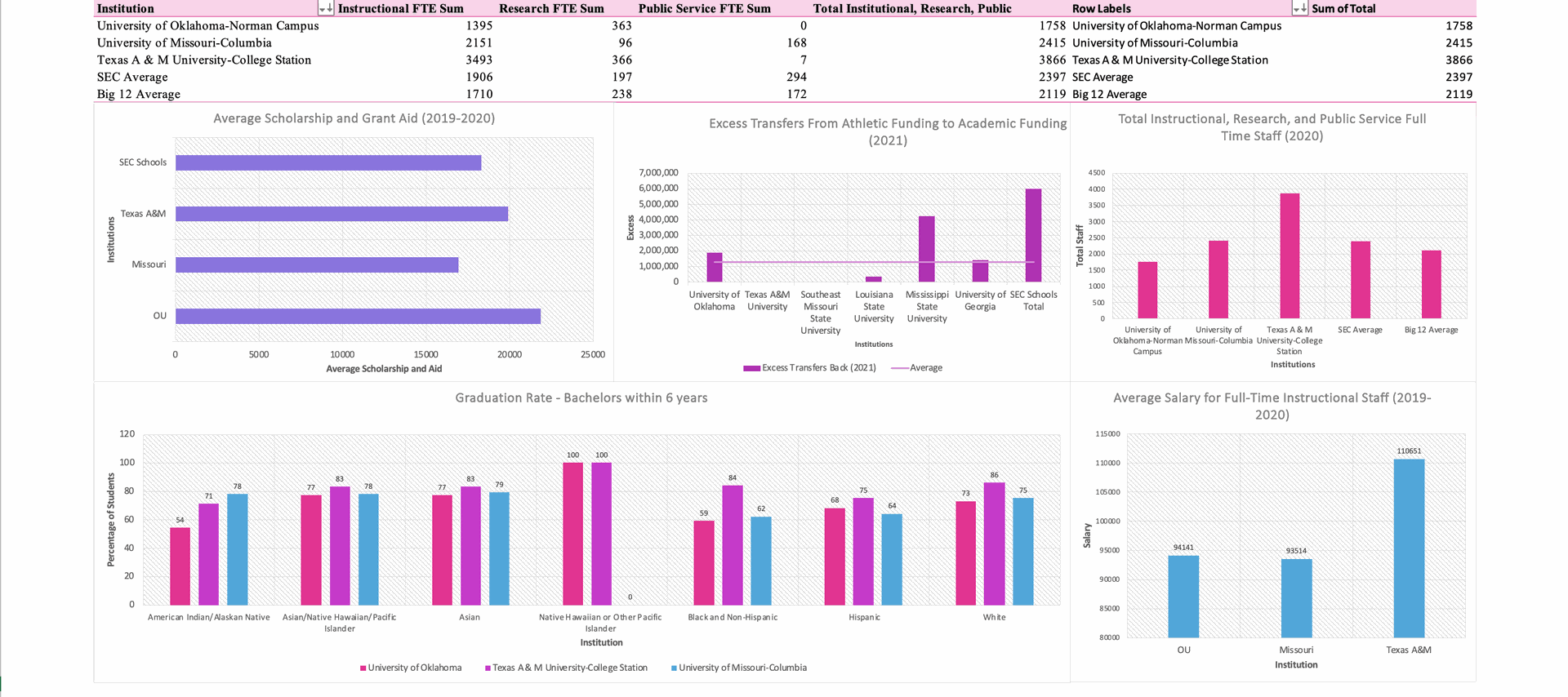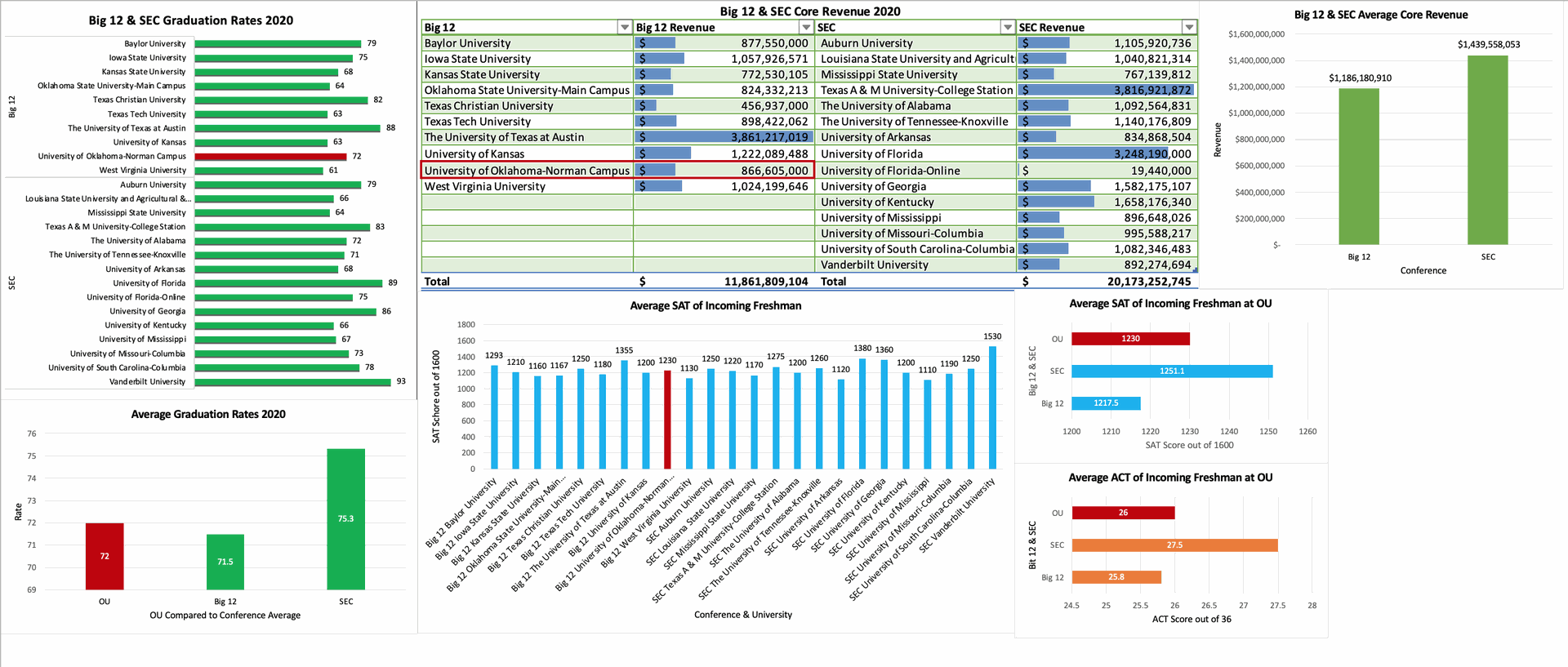Example Syllabi
This course is designed to provide political science majors with a foundation in statistics and data analysis. Rather than teaching the course in R, Stata, or SPSS, I use Microsoft Excel to help ensure students can use the skills they learn in other classes, at home, and especially after graduating. I allow students to interact with the material in many different ways, using a mixture of traditional lectures, hands-on lab sections, self-directed activities, and group work in this course.
The class centers around a semester-long assignment that asks students to build their own data dashboards using a real dataset (see example photo below). I work through each step of the process alongside students, starting at the very beginning to ensure everyone is equipped to succeed. By the end of the semester, students will have transformed a complex, messy dataset into something that policymakers and citizens of all backgrounds can easily use to make evidence-based decisions. Perhaps most importantly, they will develop marketable skills and leave feeling empowered to conduct analyses of their own.
This course is designed to teach graduate students how to conduct professional policy analyses. The syllabus is largely identical to the one Deven Carlson used when I took this class with him. It was, and still is, one of my favorite courses-- and one that has stuck with me. As such, I'm really going with the "if it ain't broke" approach here.
This course is designed to introduce undergraduate political science majors to policy process theory. To keep it manageable for undergraduates, I cover a selection of major policy process theories including Punctuated Equilibrium Theory, the Advocacy Coalition Framework, and Multiple Streams Framework, among others. The semester builds towards two final assignments in which students draw on what they've learned throughout the semester to craft a strategy for changing a policy in their hometown: a final paper as well as a professional memo that summarizes key points of the strategy outlined in their paper.
This course is designed to give graduate students a foundation in public financial management. By the end of the course, students will have the skills to confidently analyze public financial documents (e.g., city budgets). Students will also grow in their ability to recognize budgets as political documents that reflect--and sometimes even perpetuate--inequalities.
I am grateful to Aimee Franklin for the advice she provided as I designed this syllabus.
This and other syllabi coming soon!

